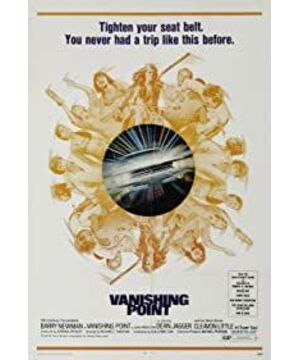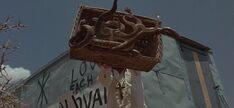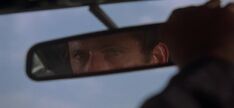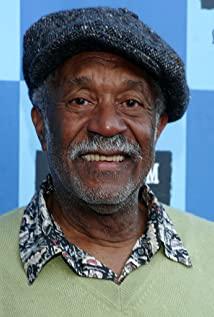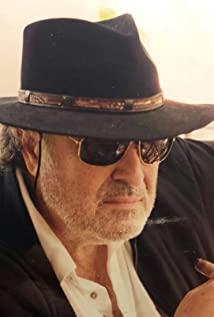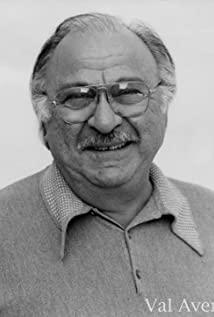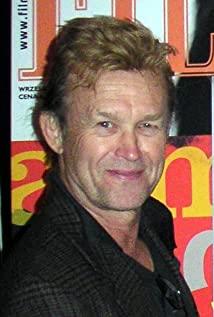"Break to Me" is a movie that doesn't seem to tell anything but a man who drives a car all the way to his death; it also seems to contain everything about America in the 1970s - emancipation, hippies, drugs, rebellion The system, the loss of ideals, wandering, self-destruction... The
film begins as calm and simple as a documentary: the police are busy, two bulldozers are placed on the highway to block the way; helicopters hover in the sky; Go to the window and watch curiously; the CBS news truck is coming fast... All eyes are on the far side of the road, listening to the voice on the radio. What are they waiting for?
Suddenly, there was the rumbling sound of a high-power motor in the distance, and a white Dodge "Challenger" flew at an extremely fast speed. High horsepower, let the car take off into the air, fly over the barricades, and leave without dust.
The driver was named Kowalski, a mechanic who was taking an employer's car from Denver to San Francisco. In fact, there is absolutely no need to hurry, but Kowalski seems to be on a mission, requiring himself to drive to San Francisco within three days of the weekend. As soon as he hit the road, he sprinted, completely ignoring the police's warning to stop. And so, a big road chase across America began.
"Bone Crush" became the forerunner of later drag racing movies, which influenced everything from 1976's "Mad Max" to today's "Fast and Furious" series (Quentin Tarantino's "Death Proof" is To pay tribute to this film, "Bone and Bone" is his favorite film, you will find a certain poster of "Death Proof" is exactly the same as this film). Although there are many beautiful car chase scenes in the film, "Break to the Body" itself does not mean this. The essence of a road movie is actually to meet all kinds of people and experience all kinds of possible lives. Some people have concluded that the essence of the American spirit is to roam forever, to flow forward, to seek, to explore, and to never be satisfied. As Whitman, the poet who best represents the American spirit, wrote in "Song of the Road": "You have just arrived in the city you are going to, and have not settled down contentedly, you are again called by an irresistible call. , called out."
With Kowalski's journey, all kinds of strange things kept emerging: he drove into the desert where ordinary people dare not go to avoid the pursuit of the police, met a strange snake-catching old man, and lived in the wilderness. naturist in ; he met two gay carjackers, and later got the help of a hippie whose girlfriend was a naturist who rode around naked on a motorcycle... Memories kept coming back, It seems to help us understand why Kowalski is reluctant to stop in front of the police and why he has to go all the way: he was also a policeman, but was forced to leave because he could not see his colleagues molesting girls and so on; he was also a policeman. Racer, but never won a championship—because he didn't really want to; he also recalled his girlfriend insisting on going surfing one winter, even though he said it was dangerous and she realized it might kill her Resolutely go - the attitude of people in the 1970s to let the boat of life drift with one's heart may be difficult for us to understand now. As the police chased, Kowalski's actions were broadcast by radio DJs, and countless people took to the streets to cheer him on. Kowalski became an anti-establishment hero who, as the black radio DJ put it, "his speed symbolized the freedom of the soul." He was "the last American hero." The great thing about "Break to Heart" is that it doesn't ask the protagonist to take any practical actions to fight against the system, express his thoughts, or publicize his ideas, it just presents a free way of life that a person can choose. But even if it is completely harmless (even the police say that he has not affected anyone except for the two misdemeanors of speeding and ignoring warnings), this kind of maverick freedom is still not allowed in this society.
At the end of the film, it returns to the scene at the beginning, but the reality is that Kowalski did not get up and go. He saw the bulldozer on the road, increased the horsepower and rammed it! We may not understand this behavior, or even take a hint from the previous episode, where he was clearly calling an old friend and saying that he would definitely drive to San Francisco on Monday. It's this unpredictable and logical ending that is so impressive, it reminds me of the tragic "Live for Nothing, Die for Something" of the twilight hero in Rambo 4. Maybe for Kowalski, stopping is even scarier than death; maybe inside, he's already dead. Kowalski was the lonely cowboy of the 1970s, as Kissinger summed it up: "The cowboy that Americans love, when he leads a team of wagons, always rides ahead alone, always rides alone to town. ...with his horse and nothing else. Sometimes he doesn't even have a gun. The cowboy doesn't have to be very brave, all he has to do is go single-handed and show others that he rides into town and that he does everything himself .” Yes, the fact that this lone hero actually did nothing but escape alone (or rather let the system catch up) shows that there is always some freedom that no one can take away, and that it is always possible to do something different from the mainstream. choose. Looking at such a simple, natural and honest film after thirty years or so, I don't know whether to express envy or emotion for that era. The director of the film, Richard Sarafian, has no other famous works except for this masterpiece.
View more about Vanishing Point reviews


